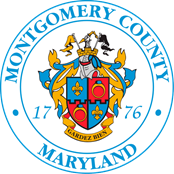Health & Wellness

This page lists most of the health and wellness benefits and services provided by Montgomery County Government. The page also contains important resources for the Seniors
On this page
Physical Health benefits
Health Coverage
- Medicaid Waiver for Older Adults
- Medicare
- Medicaid - Long Term care
- Senior Health Insurance Program (SHIP)
Prescription Coverage
Behavioral Health benefits
Dental Health benefits
Other benefits
Wellness Programs - Fitness After 50—It’s Never Too Late to Start
There are many reasons why regular exercise and physical activity are important to everyone, including older adults. Regular physical activity and exercise can produce long-term health benefits and that is one reason health experts recommend that older adults be active every day to maintain their health. Even moderate exercise can improve the health of people who are frail or have diseases that accompany aging.
In a study published in the journal Neurology, doctors found that exercise can slow cognitive decline—meaning our minds can stay sharper longer. Some older adults are reluctant to exercise because they think exercise will be too hard or that physical activity will harm them. Others think they have to join a gym or have special equipment. Often when older adults lose the ability to do things on their own, it isn’t just because they have aged—it’s often because they are not active. Lack of physical activity can lead to more doctor visits, more hospitalizations and the use of more medications.
Exercising regularly can actually help prevent or delay many disease and disabilities. In some cases, exercise is an effective treatment for chronic conditions. Studies show that people with arthritis, heart disease or diabetes benefit from regular exercise. Exercise also helps people with high blood pressure, balance problems or difficulty walking.
Here are some programs that can help you increase your amount of physical activity, get more exercise and help improve the aging process.
| Name | Description |
|---|---|
| Bone Builders |
Bone Builders is a free community-based osteoporosis prevention program that combines exercise and education to help older individuals increase their bone density. One in two older women and one in five older men will suffer from a fracture due to osteoporosis. Osteoporosis can be caused by heredity and other reasons, including a lack of calcium in the diet, a sedentary lifestyle and certain medications. There are more than 30 Bone Builders classes at locations throughout the community. Taught by a group of dedicated volunteers, the hour- long classes are held twice weekly. Participants learn and do exercises specifically chosen to increase muscle strength and bone density in order to improve balance and minimize the risk of falls. Participants bring their own weights to class. |
| Stepping On |
Stepping On is a free County-supported fall prevention program led by a trained professional. Participants learn to manage health behaviors to reduce the risk of falls. Call 240-773-8290 for information. |
| Montgomery County Recreation |
Montgomery County Recreation has a wide variety of fitness facilities and activities for people of all ages. There are programs for adults 55+ related to health, fitness and fun in many locations throughout the community.
|
Health and Fitness Programs Sponsored by Hospitals
There are low cost health promotion programs, screening and exercise classes, usually offered in community locations including shopping malls, county recreation and senior centers.
- Holy Cross Hospital
- Senior Source (Silver Spring) 301-754-8510
- Community Health 301-754-8800
- Senior Fit & Exercise: A partnership with Holy Cross, Kaiser Permanente and Montgomery County Recreation. The free classes are held at several locations around the county and help participants improve strength, endurance and flexibility. Participants must have a doctor’s permission note. Call 301-754-7895 for registration information or visit holy cross health website.
- MedStar Montgomery Medical Center (Olney)
- 301-774-8881
- Center for Successful Aging at MedStar Montgomery Medical Center
- 301-817-2481
- Suburban Hospital
- Senior Programs 301-896-3572
Senior Wellness Programs by Rockville, Gaithersburg, and Takoma Park
- City of Gaithersburg
- Serves individuals 55+ who are residents of Gaithersburg or the surrounding areas.
- 80A Bureau Drive, Gaithersburg 301-258-7380
- City of Rockville
- Serves Rockville residents 60+ with a variety of exercise, computer, recreation and education programs. Programs are available in English, Spanish and Chinese.
- 1150 Carnation Drive, Rockville 301-314-8800
- City of Takoma Park Recreation Department
- For persons 55+
- 7500 Maple Avenue, Takoma Park 301-891-7280
